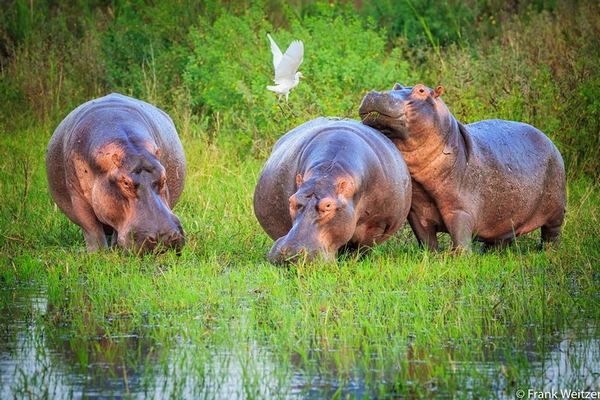First-Timers Guide to Malawi
For North American travelers, Malawi is not quite yet on the tourism radar. But should it be? While Kenya, Tanzania, and South Africa dominate safari headlines, Malawi is one of Africa’s emerging destinations. Here’s what you need to know about the country:
What to Know about its History
Malawi became a British colony in 1891 after David Livingstone and other missionaries raised interest in the area in the 1850s/60s. It remained under Britain’s rule until it gained its independence in 1964. One of the activists who helped Malawi reach independence, Dr. Hastings Kamuzu Banda, took over supreme rule of the country and was the head of a one-party state for three decades.
In 1993, the country voted to switch to a multi-party democracy and Banda was defeated in the country’s first democratic election. Today, Dr. Banda is remembered fondly within Malawi (despite some international scorn about his human rights record, he is also known for dramatically improving quality of life in Malawi during his reign). There is a large memorial attached to his burial place in Lilongwe, which has become a very important historical site for Malawi.
What Kind of Traveler Would Like Malawi
Malawi is an emerging—or at the very least on the verge of an emerging—destination. This year, it continued its country-wide effort to restore ecosystems and rehabilitate wildlife populations by reintroducing lions to Liwonge National Park (six years after they were successfully reintroduced to Majete Wildlife Reserve).
Because of the on-going restoration, Malawi sits in an interesting position—wild and raw enough for the most adventurous of travelers, yet far enough along to appease those looking for a traditional safari experience. It also has the benefit of Lake Malawi, which runs 360 miles north to south and offers a range of diverse experiences and ecosystems, including island-based safari lodges (see below).
What to Eat and Drink
When eating and drinking as a foreigner in Malawi, you will mostly keep to your dwelling. That is, most of the western-focused restaurants are found within the hotels and lodges where you stay (with some exceptions in Lilongwe and Blantyre). But that doesn’t mean you can’t eat fresh and local. Be sure to ask for and try out these Malawi staples:
Nsima—Pronounced “Sima,” it is a maize-based cornmeal that serves as the basis for the Malawi diet. Traditionally, nsima is eaten by hand, rolled into little balls and combined with meat or vegetables.
MGT—The proper way to order a gin and tonic with local Malawi gin is MGT—Malawi gin and tonic.
Local Freshwater Fish—Many Malawi villages earn their living as fishermen and stewards of Lake Malawi. Most restaurants you visit within the country will have fresh, local fish on the menu.
Areas to Explore in Malawi
Malawi offers a number of National Parks to explore.
Liwonge National Park
Great for: Boat safaris, wilderness lodging
Info: Centered around the Shire River, Liwonge is a haven for hippos, home to more than two thousand of them. Other game attracted by the water includes elephants, baboons, zebra, rhinos, leopards, warthogs, impala, and lions—the latter of which was reintroduced to the Park in the spring of 2018. Mvuu Wilderness Lodge (Mvuu is the Malawi word for hippo) overlooks the Shire river and offers a range of accommodations, from luxury lodges to basic camping.
Lake Malawi National Park
Great for: Snorkeling, scuba diving, island lodging,
Info: Lake Malawi is the crown jewel of the country, running 360 miles from its northern to southern tip. Its waters are home to more than 600 species of cichlids, making it an attractive place to snorkel and scuba dive. Lakeside and island resorts, like the Blue Zebra Island Lodge, serve as a home base for exploration.
Nyika National Park
Great for: horse safari
Info: The largest and oldest National Park in the country, the grassy hills of Nyika are located in the highlands about 6,000 feet above sea level, offering spectacular vistas and a unique landscape. It is best explored via horseback.
Kasungu National Park
Great for: Game drives and walking safari
Info: Kasungu is the country’s second largest National Park and boasts a combination of woodlands, bush, grassland, lakes, marsh, and rivers. Buffalo, zebra, hippo, and elephant all call Kasungu home.
Where to Stay
Malawi has a diverse range of safari lodges and accommodations to help you move around the country with purpose, comfort, adventure, and style. For examples of safari, lakeside, and city properties, see our post on Malawi lodges.
You may be interested

Princess Kate's best spring dresses – and the cheapest alternative is just £11
admin - Apr 20, 2024[ad_1] Spring is the perfect time to wear lighter, brighter colours, breezy fabrics and fun prints. Satin styles, floral patterns, and…

Rebel Moon 2 reviews slam Zack Snyder's 'tedious' Netflix sequel as 'even worse'
admin - Apr 19, 2024[ad_1] Last December, Rebel Moon Part One – A Child of Fire hit Netflix, with critics slamming the sci-fi epic…

Johnny Depp on ‘challenge’ of playing King Louis XV in Jeanne du Barry – Exclusive
admin - Apr 19, 2024[ad_1] After the film's debut at Cannes last year, Johnny Depp’s latest movie lands in UK cinemas today.The Pirates of…
Leave a Comment
You must be logged in to post a comment.


























